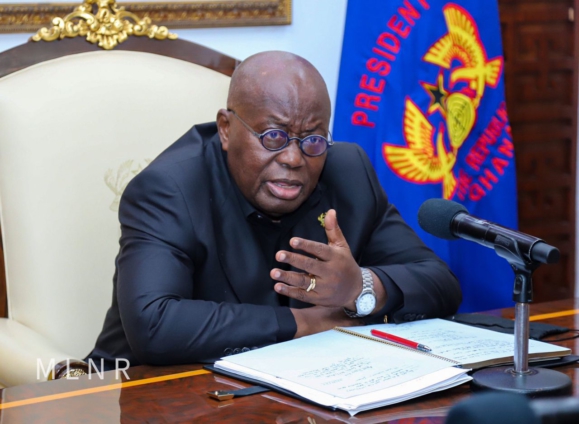President Nana Akufo-Addo has urged African leaders to guard against the continuing consequential power of rating agencies on African economies.
The credit ratings by these rating agencies, he described, has affected the cost of borrowing and access to the international capital markets.
Speaking at the African Union meeting in Addis Ababa, Ethiopia, President Akufo-Addo charged African leaders to help reform the global financial architecture.
“We need to guard against the continuing consequential strangle of the rating agencies which has affected the costing, access to capital markets for African countries. It has during this COVID-19 period resulted in the downgrading of many African countries, exacerbating even more their funding challenges”.
“Furthermore, it is of the utmost importance that the G20 leaders stick to their commitment to reallocate to Africa SDR 100 billion they made, reached at the Paris Summit in May 2020”, he pointed out.
President Akufo-Addo continued that the IMF should not be the sole beneficiary of such rechanneling, noting “we believe that our own continental institutions, such as the African Development Bank (AFDB) and Afreximbank, should be recipients of the recycling of these SDRs. Our Finance Ministers and the United Nations Economic Commission for Africa (UNECA) have advocated for the use of regional development agencies to be included in this rechanneling.”
He also told the Assembly that African Finance Ministers, with UNECA, have consistently championed the allocation of SDRs to capitalize AfDB and AfreximBank, to help establish an African Stability Mechanism, and to initiate a Liquidity Support Facility (LSF).
The President of the Republic of Ghana advanced his argument that “we [African leaders] need to work collectively as the African Union to reform the global financial architecture even if we build and strengthen our financial institutions”.
This the President believes will address the financial challenges of some African countries.
According to the President, “the major challenges towards the establishment of the AUFIs include the slow rate of signature and ratification of the legal instruments, and the limited capacity of Member States to finance the establishment of the AUFIs. Regrettably, none of the AUFIs has reached the minimum number of ratifications required for the enabling legal instruments to enter into force, and, thereby, facilitate their substantive establishment.”
Latest Stories
-
Let’s prioritize research quality in higher education institutions for industrial growth-Prof. Nathaniel Boso
4 hours -
Herman Suede is set to release ‘How Dare You’ on April 24
8 hours -
Heal KATH: Kuapa Kokoo, Association of Garages donate 120k to support project
8 hours -
KNUST signs MOU with Valco Trust Fund, Bekwai Municipal Hospital to build student hostel
8 hours -
The influence Ronaldo has on people, Cadman Yamoah will have same on the next generation – Coach Goodwin
9 hours -
Gender Advocate Emelia Naa Ayeley Aryee Wins prestigious Merck Foundation Awards
10 hours -
South Africa bursary scandal suspects granted bail
10 hours -
Ecobank successfully repays $500m Eurobond due April 18
10 hours -
Re: Doe Adjaho, Torgbui Samlafo IV, call for Unity among Paramountcies in Anlo
10 hours -
Extortion and kidnap – a deadly journey across Mexico into the US
10 hours -
Rihanna says fashion has helped her personal ‘rediscovery’ after having children
11 hours -
Development Bank Ghana targets GH¢1bn funding for commercial banks in 2024
11 hours -
Shatta Movement apologises to Ghana Society of the Physically Disabled after backlash
12 hours -
Sammy Gyamfi writes: Tema-Mpakadan Railway Project; A railway line to nowhere
12 hours -
Bright Simons: Is the World Bank saving or harming Ghana?
12 hours

